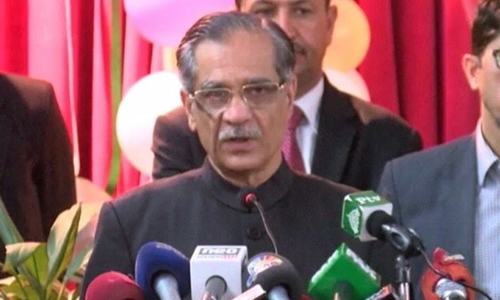ISLAMABAD: Since the extension in the deadline of the tax amnesty scheme, the pace of declarations to whiten domestic and foreign assets has slowed down considerably, say sources in the tax department.
Since July 1, the number of declarants has reduced for unknown reasons. “We have received nearly 2,000 declarations until July 19,” the sources said, adding that the amount of declared assets was also not significant. The declarants have paid around Rs3 billion in taxes so far this month.
Nearly 55,000 people had declared their more than Rs1,770bn worth of domestic and foreign assets under the tax amnesty scheme until June 30 this year and paid around Rs99bn in taxes, with some still in the pipeline.
After expiry of scheme, a high-level committee will use data about rents Pakistanis receive from their properties in UK
The last date for the amnesty scheme was extended following representation by various firms, especially chartered accountants and lawyers, claiming that many more people wanted to avail the scheme, but they were facing problems. In the extended scheme, those concerns have already been addressed to a large extent.
The Federal Board of Revenue has stepped up its efforts to encourage people to avail the scheme before it expires. The FBR has obtained data from the authorities in the United Kingdom and Dubai and the tax department is sending messages to the people through various mediums to avail the scheme before formal notices are served on them. Tax officials are also meeting people of various chambers and associations and holding seminars across the country to encourage them to come forward and avail the scheme.
A senior tax official said the FBR expected that people would opt for the scheme in the last 10 days of the extended period. “We are in constant contact with the chartered firms who have given us positive vibes about the declarations under the scheme.”
After the scheme is expired, the official said, a high-level committee of chief commissioners would be constituted exclusively for using of data regarding rents that Pakistani citizens received from their properties in the UK. Those declaring their UK properties under the scheme could skip the notices, the official said, adding that it was already decided that the committee would devise a plan to serve notices on all those people who failed to declare their assets.
The same procedure would be adopted for Dubai properties, the official said, adding that declarations from Dubai were encouraging.
On the other hand, the director of intelligence and investigation has collected data of properties, gift schemes, vehicles, etc. The data has already been shared with regional tax offices.
Pakistan has also become a signatory to the OECD Multilateral Convention which will provide access to information about offshore financial accounts of Pakistani residents from September this year. This will enhance the capacity of the FBR due to access to offshore financial accounts of Pakistani residents held in the signatory countries.
According to the tax official, the data would be used for broadening the tax base in the current fiscal year.
The amnesty scheme for foreign assets applies to both liquid and immovable assets such as bank accounts, shares and mortgaged properties. Tax rates range from two per cent to 5pc, depending on the type of asset. Special tax rate of 2pc is applicable to liquid assets which are repatriated into Pakistan.
The amnesty scheme for domestic assets covers all types of assets and income, with tax rates of 2pc and 5pc.
For payment of tax on foreign assets, the State Bank of Pakistan has devised a procedure whereby tax in US dollar is deposited into SBP’s account through wire transfer.
The government has issued the Government of Pakistan’s US Dollar Denominated Amnesty Rules, 2018, and authorised the SBP to issue these bonds having a maturity period of five years and annual profit of 3pc to be paid semi-annually.
According to the rules, the citizens of Pakistan can invest in these bonds out of remittances declared under the foreign amnesty or through encashment of foreign currency accounts held in Pakistan.
Necessary amendments have also been made to the Protection of Economic Reform Act, 1992, to regulate foreign exchange movements and bring them in line with the Income Tax Ordinance, 2001.
Moreover, amendments have also been made to the Income Tax Ordinance, 2001, whereby the FBR may inquire about the source of foreign remittance above Rs10m and limitation of five years to probe foreign assets and income has been removed.
Published in Dawn, July 21st, 2018














































